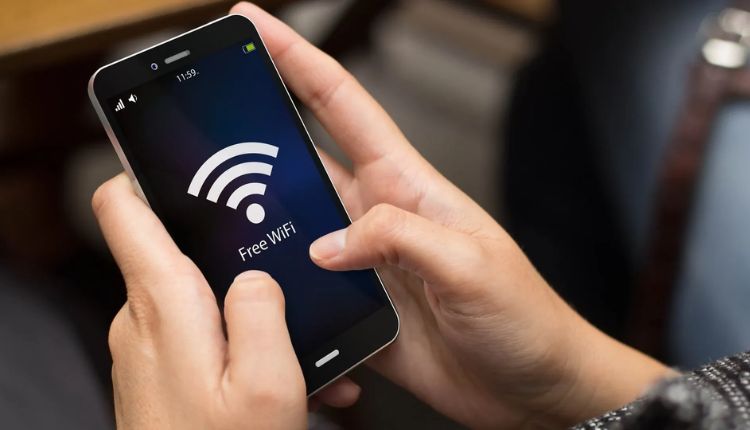People rely on WiFi for everything from communication to entertainment and work. However, not everyone has constant access to reliable internet, leading many to look for ways to connect to nearby WiFi networks. One popular phrase that often appears online is “App para conectar no WiFi do vizinho”, which translates from Portuguese as “app to connect to your neighbor’s WiFi”. The idea has sparked curiosity among users, but it also raises serious questions about legality, ethics, and technology. In this article, we’ll explore what such apps claim, the myths surrounding them, and the right ways to connect safely and legitimately.
Understanding the concept of the application Para Conectar No WiFi Do Vizinho
The term “App para conectar no WiFi do vizinho” refers to mobile or desktop applications that claim to help users access nearby WiFi networks without the owner’s permission. These apps often seem to promise instant connections or reveal hidden passwords.
While some of them advertise legitimate network analysis features, others are simply misleading or even malicious. Most users who search for these apps do so out of curiosity or a genuine need to access the Internet, especially in areas with limited connectivity. However, before downloading or using these apps, it is essential to understand what these apps actually do.
How these apps claim to work
Many apps labelled as “App para conectar no WiFi do vizinho” claim to hack into protected networks or retrieve saved passwords. Some use WiFi vulnerability databases that store information about public routers, while others rely on algorithms to guess weak passwords. There are even apps that support “signal sharing” networks, where users voluntarily share their WiFi credentials with others. However, these claims often exaggerate their capabilities. In fact, most routers today use strong encryption standards like WPA2 and WPA3, making unauthorised access extremely difficult.
Legal and ethical implications
Connecting to your neighbour’s Wi-Fi without permission isn’t just a technical problem—it’s a legal and ethical problem. Accessing someone else’s private network without consent can be considered a digital intrusion or “App para conectar no WiFi do vizinho”. Even if there is no malicious intent, unauthorised access may still violate local cyber laws. From an ethical perspective, this violates trust and privacy, as routers often store connected devices and traffic data. Instead of looking for shortcuts, users should always respect privacy boundaries and explore legal alternatives to connecting to the Internet.
Risks of using suspicious WiFi apps
Downloading and using the “App para conectar no WiFi do vizinho” can expose your device to significant risks. Many of these apps are hosted on unofficial websites or third-party app stores, where they bypass normal security checks.
As a result, they may contain malware, spyware or adware designed to steal personal information. Users have reported cases of data breaches, identity theft, and phone slowdowns after using such tools. In addition, these apps often require unnecessary permissions, such as access to contacts, photos, or messages, putting users at additional risk.
The technology behind WiFi access
To understand why such “App para conectar no WiFi do vizinho” are unreliable, it is important to understand how WiFi security works. Modern WiFi routers protect the connection using encryption protocols. WPA2 and WPA3 encryption ensure that only users with the correct password can access the network.
Even if the application tries to brute force or guess the password, it would take an impractical amount of time and computing power to succeed. Some legitimate apps like WiFi Analyser or NetSpot help users identify weak spots or measure signal strength, but they don’t crack passwords. They are designed for network optimisation, not for unauthorised access.
Alternative connection methods: “App para conectar no WiFi do vizinho”
If someone is struggling to access the internet, there are legal and safe alternatives to trying to connect to your “App para conectar no WiFi do vizinho”. One option is to ask a neighbour for permission and possibly share the cost of their internet tariff. Many ISPs also offer community WiFi zones or shared hotspots that registered users can freely use. Public libraries, cafes, and transport hubs often also provide free Wi-Fi. In addition, many mobile carriers now include data sharing options that allow friends or family members to share Internet connections through hotspot features.
Why You Should Avoid Hacking Apps
Using hack-based apps labelled as “App para conectar no WiFi do vizinho” not only compromises the security of your device but can also have long-term consequences. If caught, the user may face legal penalties, suspension of internet services, or even criminal prosecution, depending on local laws. In addition, such activities can damage relations with and community members. Trust is an essential part of any neighbourhood, and breaking it for short-term convenience can lead to lasting conflicts.
Ethical Alternatives to Internet Sharing
Technology today offers many ethical ways to “App para conectar no WiFi do vizinho.” For example, mesh network systems allow multiple homes to legally connect to a single high-speed router. Families or friends living nearby can share an internet plan by mutual agreement. Some smart routers even come with “guest network” features that allow secure sharing of access without revealing the master password. These solutions maintain privacy and avoid legal issues while encouraging community collaboration.
The Importance of “App para conectar no WiFi do vizinho”
Cyber awareness plays a vital role in ensuring that users make safe and responsible decisions online. Many individuals who are looking for “App para conectar no WiFi do vizinho” may not be aware of the consequences of their actions. Digital literacy includes understanding how networks work, what is considered ethical use, and how to protect yourself from fraud. Educating yourself about internet safety not only protects personal devices but also helps create a more responsible digital community.
Role of Internet Service Providers
Internet Service Providers (ISPs) can help bridge the connectivity gaps that often lead people to seek unauthorized WiFi access. Many ISPs offer flexible prepaid data options, affordable plans or community internet bundles. Some also provide rental routers with improved signal strength or extended coverage. Contacting your ISP and explaining your internet needs can often result in practical, legal and secure solutions.
Conclusion
The idea of an “App para conectar no WiFi do vizinho” may sound appealing to those who struggle to access the Internet, but in reality, it carries significant risks. Most apps that promise to access other people’s WiFi either don’t work or contain malicious software. In addition to the technical risks, there are serious ethical and legal implications to consider.
Instead of taking shortcuts, users should explore legitimate ways to stay connected, such as data-sharing options, public WiFi, or affordable plans. Respecting others’ privacy and maintaining digital integrity are essential to building a safer and more trustworthy online environment.
FAQs
What does “App para conectar WiFi do vizinho” mean?
It means “App para conectar no WiFi vizinho” in Portuguese. It usually refers to applications that claim to allow access to nearby WiFi networks.
Are these WiFi connection apps legal to use?
No, any app that accesses another person’s network without permission is illegal and unethical.
Do any of these apps actually work?
Most of them do not work as advertised. They often rely on outdated or fake databases that can contain malware.
What is a safe alternative to using such apps?
You can ask for permission to share WiFi, use public hotspots, or choose affordable mobile data plans instead.
Can using these apps harm my phone?
Yes, they can install viruses, steal data, or damage your operating system. Always download apps from official stores only.
Is there a way to share WiFi safely with others?
Yes, modern routers have guest network features that allow safe and temporary sharing without exposing private credentials.









